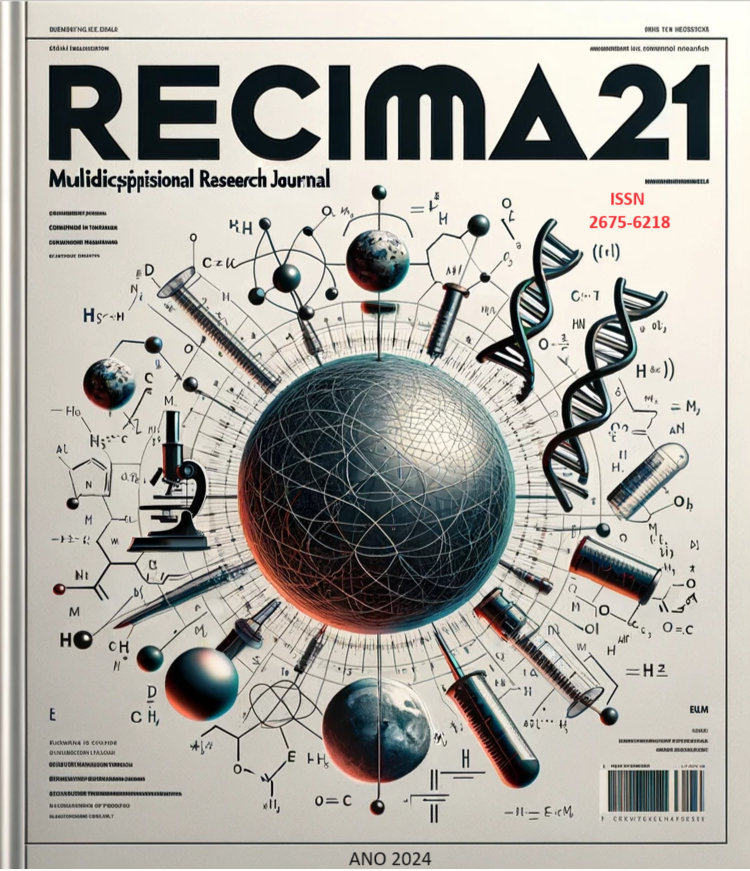A SERIOUS GAME FOR THE PROMOTION OF EDUCATION IN PRIMARY EDUCATION
DOI:
https://doi.org/10.47820/recima21.v5i10.5758Keywords:
Serious game, Teaching-learning, Software architectureAbstract
The classroom has become increasingly dynamic in order to keep up with technological advances and enrich teaching and learning, and one of the ways of achieving this is through serious games, in which a computer game is used for educational purposes. Given this assumption, the aim of this article is to propose the software architecture for a serious game in the format of a quiz, aimed primarily at basic education. With the collaboration of a school in the Alto Oeste Potiguar region, we came to the conclusion that there was a need to create an application that combines certain aspects and functionalities that other applications do not have, such as the various game modes (solo, duo, but mainly competition with leaders) and the autonomy of teachers in managing questions and competitions. By using a tool of this type, you gain from facilitating learning and the transmission of knowledge, without neglecting the fun and ensuring that it is always based on the main purpose, which is the teaching process.
Downloads
References
BASS, L.; CLEMENTS, P.; KAZMAN, R. Software architecture in practice. [S. l.]: Addison - Wesley professional, 2012.
BUSARELLO, R. I. Gamification: princípios e estratégias. São Paulo: Pimenta Cultural, 2016.
DOMÍNGUEZ, A. et al. Gamifying learning experiences: Practical implications and outcomes. Gamifying learning experiences: Practical implications and outcomes. Computers & Education, v. 63, n. 1, p. 380–392, 2013. DOI: https://doi.org/10.1016/j.compedu.2012.12.020
FOWLER, Martin. UML distilled: a brief guide to the standard object modeling language. [S. l.]: Addison-Wesley Professional, 2018.
MARTIN, Robert C. Clean code: a handbook of agile software craftsmanship. [S. l.]: Pearson Education, 2009.
MITAMURA, T.; SUZUKI, Y.; OOHORI, T. Serious games for learning programming languages. International Conference on Systems, Man, and Cybernetics, p. 1812–1817, 2012. DOI: https://doi.org/10.1109/ICSMC.2012.6378001
MOREIRA, M. A. Teorias de aprendizagem. São Paulo: Editora pedagógica e universitária, 1999.
PILONE, Dan; PITMAN, Neil. UML 2.0 in a Nutshell. [S. l.]: O'Reilly Media, Inc., 2005.
SOMMERVILLE, Ian. Software engineering. America: Pearson Education Inc, 2011.
Downloads
Published
How to Cite
License
Copyright (c) 2024 RECIMA21 - Revista Científica Multidisciplinar - ISSN 2675-6218

This work is licensed under a Creative Commons Attribution 4.0 International License.
Os direitos autorais dos artigos/resenhas/TCCs publicados pertecem à revista RECIMA21, e seguem o padrão Creative Commons (CC BY 4.0), permitindo a cópia ou reprodução, desde que cite a fonte e respeite os direitos dos autores e contenham menção aos mesmos nos créditos. Toda e qualquer obra publicada na revista, seu conteúdo é de responsabilidade dos autores, cabendo a RECIMA21 apenas ser o veículo de divulgação, seguindo os padrões nacionais e internacionais de publicação.













